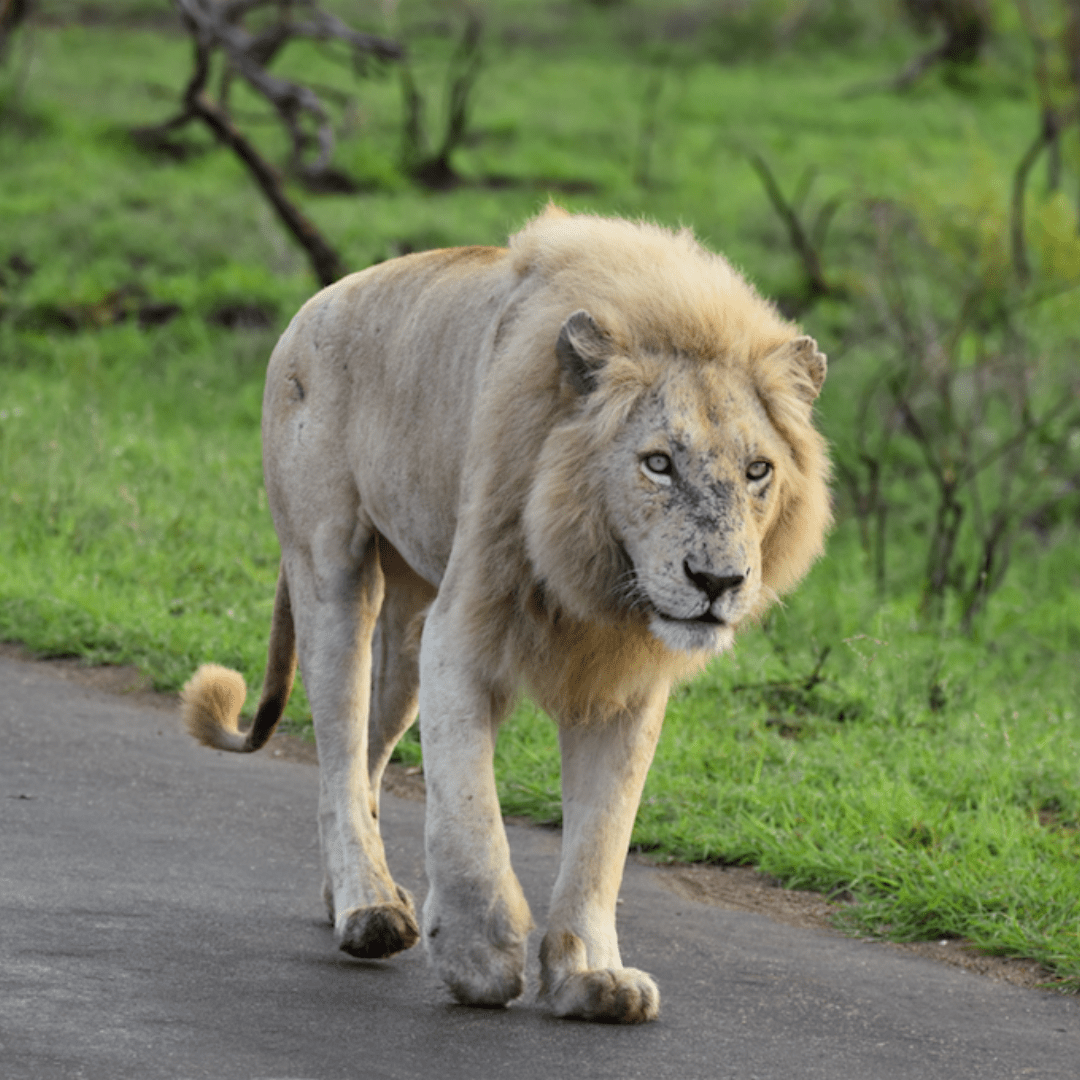Visitors to the Kruger National Park can breathe a sigh of relief — Casper, the iconic white lion who has become a legend among safari-goers, is alive, well, and still ruling his patch of wilderness.
Earlier this week, whispers and worries started swirling on social media after some recent photos of Casper sparked fears about his health.
Some speculated he might be battling anthrax or recovering from a venomous snake bite.
Concerned fans quickly called for park rangers to step in.
Social Media Panic Turns Into a Search Mission
SANParks, which manages the Kruger National Park, took the concerns seriously.
Rangers tracked down Casper, now a distinguished elder at 11 years old, to check on his condition.
After a thorough examination, vets ruled out both anthrax and snakebite.
Instead, the mystery was solved — Casper had a few battle scars. He was sporting injuries above his right eye and inside his mouth, most likely from a skirmish with another lion.
These wounds caused swelling and infection, which explained his altered appearance.
The Story of an Aging Legend
Casper’s story is one for the wildlife history books.
He’s one of two remaining brothers from a powerful coalition of four males that once dominated the Satara region.
As happens in the wild, younger and stronger males eventually took over the territory.
What makes Casper stand out isn’t just his survival skills — it’s his striking white coat, caused by a rare recessive gene rather than albinism.
Over the years, that rare beauty has made him one of the most sought-after sightings in Kruger, with tourists often describing the experience as magical.
Park Officials Urge Calm and Respect for Nature
SANParks has reassured the public that Casper is under watch and doesn’t need any medical intervention for now.
They’ve also thanked everyone for their compassion but reminded visitors that the Kruger remains a wild space where injuries, aging, and territorial disputes are part of nature’s rhythm.
For those still hoping to catch a glimpse of him, the park encourages visitors to share any sightings through official reporting channels.
That way, Casper’s story — and his safety — can continue to be tracked and celebrated.

